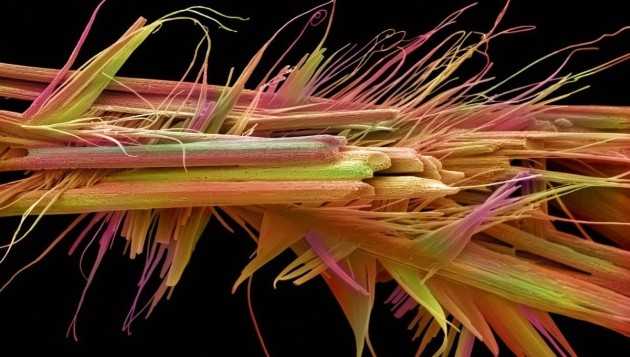A new report from the Institute for Scientific Information on Coffee (ISIC), a not-for-profit organisation devoted to the study and disclosure of science related to coffee and health, highlights the potential role of coffee consumption in reducing the risk of cognitive decline.
The report concludes that a moderate intake of coffee (3-5 cups per day) may provide protection against age-related cognitive decline and other neurodegenerative diseases such as Alzheimer’s and Parkinson’s.
The report provides a summary of the research presented at ISIC’s symposium, titled ‘Nutrition, Coffee and Age-Related Cognitive Decline’, held during the European Union Geriatric Medicine Society’s 2016 Congress in Lisbon, Portugal.
The findings are particularly relevant given Europe’s ageing population: the number of people aged 60 years or over is projected to rise to 217.2 million by 20301, therefore understanding and communicating diet and lifestyle factors that may limit age-related cognitive decline will help to improve the quality of life for this growing demographic.
The symposium speakers whose insights and research contributed to ISIC’s report were:
- Professor Lisette de Groot, Professor of Nutrition and Ageing, Division of Human Nutrition at Wageningen University (The Netherlands)
- Professor Rodrigo A. Cunha, Professor at the Faculty of Medicine of the University of Coimbra and Principal Investigator at the Centre for Neuroscience and Cell Biology of the University of Coimbra (CNC) (Portugal)
- Dr Elisabet Rothenberg, Associate Professor of Nutrition at Kristianstad University (Sweden)
Key highlights about coffee from the report include:
- Research published in 2016 suggests that moderate coffee consumption can reduce the risk of developing Alzheimer’s by up to 27%2. Research has suggested that it is regular, long-term coffee drinking that is key to helping to reduce the risk of Alzheimer’s Disease3.
- The association between coffee consumption and cognitive decline is illustrated by a ‘U-shaped’ pattern in recent meta-analyses, with the greatest protection seen at an intake of approximately 3-5 cups of coffee per day4.
- Although the precise mechanisms of action behind the suggested association between coffee and age-related cognitive decline are unknown, caffeine is likely to be involved. There are many other compounds in coffee, such as antioxidants and anti-inflammatory agents, which may also play a role. Caffeic acid, for example, is a polyphenol (antioxidant) found in coffee, and research suggests that these may be associated with improved cognitive function5.
Professor Rodrigo A. Cunha, Professor at the Faculty of Medicine of the University of Coimbra and Principal Investigator at the Centre for Neuroscience and Cell Biology of the University of Coimbra (CNC), Portugal, commented:
“Healthcare professionals have an important part to play in providing patients with accurate research-based information, to help them to follow a healthy diet and lifestyle, and in turn, reduce their risk of age-related cognitive decline. Moderate coffee consumption could play a significant role in reducing cognitive decline which would impact health outcomes and healthcare spending across Europe.”
In its Scientific Opinion on the safety of caffeine, the European Food Safety Authority (EFSA) concluded that intakes of up to 400mg of caffeine (the equivalent of up to 5 cups of coffee per day), from all sources, do not raise any concerns for healthy adults6. One cup of coffee provides approximately 75-100mg caffeine.
To read the report, please click here.
References
- The Department of Economic and Social Affairs of the United Nations Secretariat, ‘World Population Ageing Report 2015’. Available at: http://www.un.org/en/development/desa/population/publications/pdf/ageing/WPA2015_Highlights.pdf
- Liu Q.P. et al. (2016) Habitual coffee consumption and risk of cognitive decline/dementia: A systematic review and meta-analysis of prospective cohort studies. Nutr, 32(6):628-36.
- Cao C. et al. (2012) High blood caffeine levels in MCI linked to lack of progression to dementia. J Alzheimers Dis, 30(3):559-72.
- Van Gelder B.M. et al. (2007) Coffee consumption is inversely associated with cognitive decline in elderly European men: the FINE Study. Eur J Clin Nutr, 61(2):226-32.
- Khan K.A. et al. (2013) Impact of caffeic acid on aluminium chloride-induced dementia in rats. Journal of Pharmacy and Pharmacology, 65(12):1745-1752.
- EFSA (2015) Scientific Opinion on the Safety of Caffeine. EFSA Journal, 13(5):4102.
About ISIC
The Institute for Scientific Information on Coffee (ISIC) is a not-for-profit organization, established in 1990 and devoted to the study and disclosure of science related to “coffee and health.”
Since 2003 ISIC also supports a pan-European education programme, working in partnership with national coffee associations in nine countries to convey current scientific knowledge on “coffee and health” to health care professionals.
ISIC’s activities are focused on:
- the study of scientific matters related to “coffee and health”
- the collection and evaluation of studies and scientific information about “coffee and health”
- the support of independent scientific research on “coffee and health”
- active dissemination of balanced “coffee and health” scientific evidence and knowledge to a broad range of stakeholders.
ISIC respects scientific research ethics in all its activities. ISIC’s communications are based on sound science and rely on evidence and scientific studies derived from peer-reviewed scientific journals and other publications.
ISIC members are six of the major European coffee companies: illycaffè, Jacobs Douwe Egberts, Lavazza, Nestlé, Paulig, and Tchibo.















